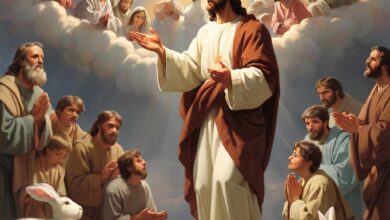Reflection April 30, 2017
Third Sunday Of Easter (divine Mercy Sunday) – year A
Readings: Acts 2:14, 22-33; 1 Pt 1:17-21; Lk 24:13-35
Theme: The Emmaus God who meets us in our disappointments
During the weeks after Easter, the church puts us in touch with the first men and women who experienced the risen Jesus in an attempt to deepen our appreciation and understanding of our faith. In describing those early believers, Gunther Bornkamm once remarked, “The men and women who encounter the risen Christ in the Easter stories have come to an end of their wisdom. They are alarmed and disturbed by His death . . . like the two disciples on the way to Emmaus, their last hopes are destroyed” (Jesus of Nazareth, Harper and Row, New York: 1960).
Today being the Third Sunday of Easter, the Gospel reading is the story of Jesus’ encounter with two of his disciples on the road to Emmaus. The text presents us with the story that changes the perception of the two disciples after they recognize Jesus Christ in the explanation of the Scriptures and the breaking of bread.
As they were on their journey, and discussing all the things that had happened, Jesus himself came near and went with them. But the one they encountered was not the flesh and blood Jesus, a resuscitated version of the man they knew, but the Christ of God, one knowable only by the mystery of divine self revelation.
The story of the disciples encounter with Christ along the Emmaus road is a story of knowing and unknowing, of fleeting possession and eternal presence.
When the risen Christ was walking beside them they were unaware of His presence. They only came to recognize his presence in the breaking of bread. And once their eyes were opened and they thought they could hold onto His presence, in an instant He vanished from their sight.
The walk to Emmaus is a metaphor for our own life journey of faith, when the Lord catches up with us too. Life, as depicted in the Scriptures, is a journey. We are called a ‘pilgrim people,’ always on the march to our heavenly home. Our journey of faith is a journey of learning and entering deeper into the mystery of the Risen Christ.
In this Gospel, with the two disciples walking on the road, we might picture ourselves represented, on our life’s journey. We need, however, to realize that we are never alone in our life’s journey. He is with us all the time and in all situations. But, as happened with the two disciples, we at times feel He has abandoned us, He has let us down and he no longer cares. We need to be ready to recognize Him entering our lives so that we can respond appropriately to him.
There is a practical therapy to be found and used in Emmaus. It begins by facing what we fear and escape from, even by telling ourselves or others the happy ending. Christian reality has no need of refuge. We need not fear.
His word taught them the meaning of His life and gave hope in their disappointment. Our lives may be crowded with duties and customs and routines; our minds, full of disappointments; our consciences, depressed, with sins.
There seems little room for hope in all this. What can we do? The Gospel goes on to tell of the next great step the two disciples took. They invited the stranger into their home.
As He walked along with them He entered their lives where they were, namely, in their distress. That is the point where we too should go to meet Jesus. Jesus always wants to meet us where we are, not where we would like to be or where we think we ought to be. He comes to us in ordinary life situations, but He never forces himself on us.
Jesus wants to communicate with us and he speaks to us and is truly present in the Scriptures. More specifically, Jesus is present among us in all our sacramental celebrations but especially in the Eucharist. Jesus as Word and Eucharist is our food for our pilgrimage to our true home.
In the breaking of bread, he unites the Christian community into his Body and also keeps his promise to be with us till the end of time.
Finally, “The Emmaus Journey” begins in blindness, gloom, disillusionment and despair. It ends with the warming of the disciples’ hearts, the opening of their eyes, and their return to Jerusalem. Their encounter with the Risen Jesus had made them see the events in Jerusalem from a new perspective.
Instead of looking at Jesus’ death as the end of their aspirations, they now view it as the beginning of a new life in the Risen Christ. It begins with the shattering of an immature faith and ends with the disciples giving witness to a mature faith. Their story now is a new one – a story filled with life and hope.
May the God of Emmaus, who can vanish from our sight, can be found in the scriptures, in the breaking of bread and the prayers, offer us heart burning knowledge of His being and setting before us the gift of life.

